Sharing a 101.2-inch wheelbase and an engine lineup, the design paths of the 2012 Hyundai Accent and 2012 Kia Rio diverged in a wood, and Kia chose the more stylish route. That’s not to say the 2012 Hyundai Accent isn’t a handsome hatchback, GoodCarBadCar.net sees huge sales in its future, even more so after driving a 2012 GL Sedan. But from the rear, the 2012 Kia Rio is undoubtedly (beauty-in-beholder’s-eye factor notwithstanding) a more cohesive package. Moreover, Hyundai’s images of the new Accent make the hatchback’s wheels appear terribly tiny when viewed from the rear three-quarter. The Rio, on the other hand, has strong five-spokers which could fool you into thinking this is the sporty high-output Rio derivative.
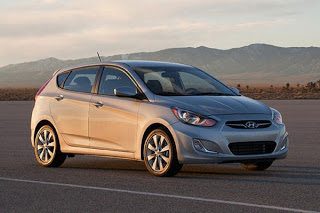 |
| Read Updated 2012 Hyundai Accent Specs, Pricing, Pictures & Fuel Economy Details Here |
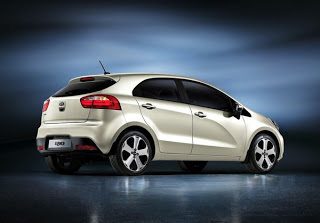 |
| 2012 Kia Rio |
Nevertheless, these eight images are meant to showcase the differences between two Korean hatchbacks, vehicles which will invariably feature low MSRPs and heady levels of equipment. We already know the Accent will be fitted with 6-speed transmissions and a full slate of safety gear – one would assume the Rio won’t go without such niceties. Kia’s press release for the 2012 Rio says some markets will also receive a 3-door hatchback and 4-door sedan. So there will be differences (the Accent is a 4-door sedan or 5-door hatch only) in the cabin and perhaps even the driving experience, but the most unique aspects of these two cars is surely the exterior design. Until more pictures become available, satisfy yourself with the two 2012 Kia Rio Galleries and The Good Car Guy’s brief analysis after the jump.
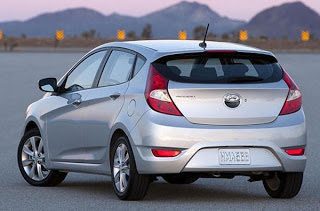 |
| 2012 Hyundai Accent |
Not too many years ago, we would’ve paused a moment and contemplated the largesse of the Rio’s headlamps. Now, the over-the-top front end seems simply to be a uniquely Kia take on the typical OTT front fascia. The gaping air intakes remind me of the 2011 Volvo S60 (its photo gallery can be seen here) while the narrowly connected grille is the main connector to the 2011 Kia Optima. Merely noticeable from the front, the scalloped sides of the 2012 Rio are downright eye-catching when you stare straight at the Rio’s taillamps from the corner of the car. Arching straight through the door handles, the two character lines which cause the concave surface help the small hatchback escape without appearing hefty while at the same time provoking visual interest. Details like the Kia badge sitting atop the trunk release are the sort of thing you wouldn’t have expected to see so nicely turned out on a Kia of yore.
The 2012 Kia Rio’s rear has something of an old Seat Leon look to it, but it’s also a little Ford Of Europeish. These aren’t bad things, and no copycat criticism should be laid on a company for its latest hatchback. It’s a two-box car – there are only so many places you can take a product with an engine room, a cabin, and four wheels.
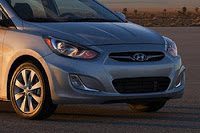 On to the Accent, the overall look is a little bit safer; a little bit more mature; a little bit more of what you’d expect. Let’s not get ahead of ourselves: both cars are pleasantly-styled; neither car is ahead of the game or one bit avant-garde. Even so, where the Rio is more stylish in the moment, the Accent is clean and purposeful and features less you could dislike. Parked side by side the Accent might seem a little boring, but we should give credit for a few strong features.
On to the Accent, the overall look is a little bit safer; a little bit more mature; a little bit more of what you’d expect. Let’s not get ahead of ourselves: both cars are pleasantly-styled; neither car is ahead of the game or one bit avant-garde. Even so, where the Rio is more stylish in the moment, the Accent is clean and purposeful and features less you could dislike. Parked side by side the Accent might seem a little boring, but we should give credit for a few strong features.
First, the hood’s shutline is enormously apparent but the eye remains drawn to a dose of character as things go concave where normally you’d see power bulges. In the same spot on the rear of the car is a lip just below the rear window that contributes to a very BMW 1-Seriesesque presentation. It’s also obvious from the rear that this car, like the Rio, seems to offer a narrow slit for a backlight. That’s a sacrifice for style. In these initial pictures the Accent looks to be the longer, lower car, truly a trick of designers and/or photographers. Besides that strange concave shape on the hood, there are a few other regions of the car that make the Accent look like the serious big brother of the two.
There’s droopiness over the license plate surround at the back. There’s extra glass behind the rear door windows that the sportier Kia doesn’t have. And that lip below the hatch’s window must be there for a reason, and the reason can’t be straight up style.
All in all, judging only on appearances, the Accent will look more current in ten years; the Rio is cooler now. And why do the exterior designs of two subcompacts matter so much to The Good Car Guy? Aren’t these econoboxes acquired based on the best deal available? Consider this: in a thousand ways, the 2012 Kia Rio and 2012 Hyundai Accent are the same car. Driving them won’t feel all that different. Paying for one won’t be dramatically more expensive than paying for the other. Fuel economy will be the same. What’s that leave? Style, my friends, style. Look as good as you can.
Related From GoodCarBadCar.net
2012 Hyundai Accent GL Sedan Driven
Hyundai Canada Sets 2012 Accent Prices
2011 Kia Sportage vs. 2010 Hyundai Tucson Image Comparison
Small Car Sales In Canada – 2010 Year End
Small Car Sales In America – 2010 Year End
2012 Hyundai Accent vs 2011 Hyundai Elantra

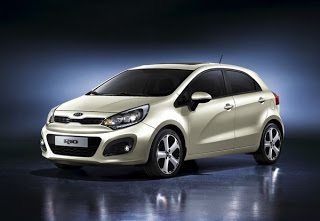
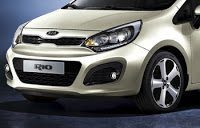
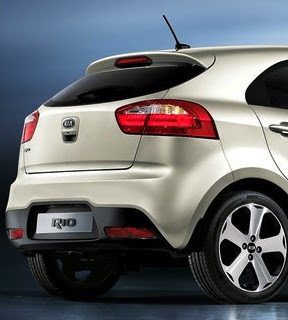
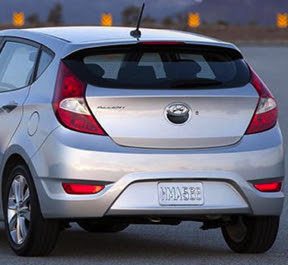







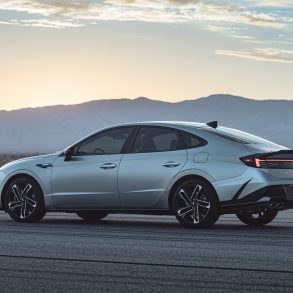
I really don't know which I would choose based solely on style. I don't like the Kia's front end that much. I love the headlights but not the design in between and below. It'd be a hard decision.
thanks for the comparision, the back end of the Rio, below the window line makes me think of the Sportage.
Peter Schreyer certainly has had a good influence on Kia and earning his fee by making Kia lots of profit.
The only ones left that have not had his major influence are the Rondo/Carens and Sedona – wonder what will happen in this regard.
did some checking on the forums and what is odd is that this vehicle looks nothing like the previous spy shots of what was projected to be the new Rio (this one was more like a smaller version Optima), this new one seems to follow more on the Picanto line
http://www.youtube.com/watch?v=gvy56WfzfyE&feature=player_embedded
can you shed any light on this? Hope Kia didn't post the wrong photo!
@conwelpic. As far as it looking like the Optima, Kia's press release did say, "New Rio has its own interpretation of Kia's signature grille, integrated with the headlamps to give a new twist on the Kia family look." And the grille is certainly Optima-like. Also, the 4-door version which we havent' seen yet could look very much like a mini Optima.
Accent is supposed to be th emore mature of the 2. The Accent is more for the 25+ crowd, while the Rio is supposed to be for the old school Accent Demographics-students.
Accent is supposed to be more about the premium experience, the Rio will be tuned for fun.
The Rio 3 door is the replacement for the Accent 3 Door, and the Veloster is sort of an Accent 3 door replacement as well.
The Veloster is not a proper Tiburon replacement-it better than the Tiburon ever was inside.
Glad Hyundai/Kia are giving us many new & interesting choices in all segments. Nothing beats a well designed hatch for all around usablity. Wish it said ''Pontiac'' on the Rio,but,oh well. Kia's building the excitement now!
@conwelpic. Both Rio and Accent have 2 version for each: Sedan and Hatch. the pictures above are the hatch version and the video on youtube shows the sedan version.
I like the looks of the rear end of the KIa Rio Hatchback better then the Ford Fiesta looking rear of the Hyundai Accent. However, I like both the front end and the side sculpturing of the Hyundai Accent better then the Kia Rio. Guess it all depends on which one hits the dealerships first and how soon the other will arrive after.
I like them both.They are far nicer than my Yaris hatchback and Toyota will have to step up their game on the next Yaris hatch or I will buy one of these two depending on who gives the best deal and test drive and noise levels of these two.
Interesting in europe the Rio is based on the Hyundai I20 platform and the Accent(I30 in europe) is the equivalent to the Kia Ceed.
The I30/Accent is a larger car than the Rio?
Hyundai's official U.S. Twitter account showed a bit of 2012 Accent today.
When kia rio2012 hatchback will be sell in the lebanese market?
I heard this one is a Chinese Version. It's only sold in Chinese market.
I like the 2012 kia rio. yeah!
Mabuhay……! Kia Motors Bohol.
Surprised there is no cup holders for rear passengers in the Accent but they are available in the Rio. Hope Hyundai can address this in the near future.